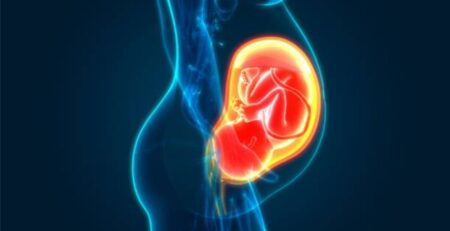HELPFUL TIPS FOR IMPROVING FERTILITY

Infertility is a condition that affects both men and women and it is the inability to conceive after one year of unprotected sexual intercourse. It can be a result of various factors and may require medical intervention to overcome.
TYPES OF INFERTILITY
1. Primary infertility: Here, a couple has never been able to conceive a child despite having regular unprotected sexual intercourse for at least one year.
2. Secondary infertility: In secondary infertility, a couple has achieved pregnancy before, or have had a biological child naturally but are now unable to conceive for the second time.

CAUSES/RISK FACTORS OF INFERTILITY
In women, infertility can be caused by a number of factors such as:
1. Hormonal imbalances
2. Age
3. Ovulation disorders
4. Blockage of the fallopian tube
5. Endometriosis
6. Uterine problems.
7. Etc.
In men, infertility can be caused by issues such as:
1. Low sperm count or motility
2. Age
3. Hormonal imbalances
4. Problems with ejaculation
5. Etc.

Lifestyle factors can also play a role in infertility for both men and women. Smoking, excessive alcohol consumption, drug use, and being overweight or underweight can all contribute to infertility.
Infertility can take an emotional, financial and even physical toll on couples who are struggling to conceive and its prevention is not always possible. However, there are steps that both men and women can take to improve their chances of conceiving. These include:
1. Maintain a Healthy Weight: Being underweight or overweight can affect your fertility; you can improve your fertility by maintaining a healthy weight. A healthy weight can be achieved by maintaining a Body mass index between 18.5 and 24.9.
2. Quit smoking: Smoking can decrease fertility in both men and women. Quitting smoking can help improve your chances of conceiving, as it reduces the introduction of harmful toxins into the body.

3. Reduce alcohol consumption: Drinking too much alcohol can affect fertility. Limiting alcohol intake can help improve your chances of conceiving, and maintain overall health.
4. Manage stress: High levels of stress can interfere with ovulation and sperm production. Stress can be managed through relaxation techniques such as meditation, adequate rest and sleep, yoga etc can help improve your chances of conceiving.

5. Eat a healthy diet: A healthy diet that includes a variety of fruits, vegetables, whole grains, and protein can improve your chance of conceiving.
6. Exercise regularly: Regular exercise helps in maintaining a healthy weight, reducing stress, and improving overall health. It also improves the mood and body positivity.
7. Take prenatal vitamins: Taking prenatal vitamins before conception can help ensure that your body has all the necessary nutrients to support a healthy pregnancy.

8. Have sex regularly: Aim to have sex every 2-3 days throughout your menstrual cycle as regular sexual intercourse increases chances of conception.
9. Know your fertile window: Knowing when you are ovulating can help you time intercourse for the best chance of conceiving. This can be done using calenders or apps to effectively track your menstrual cycle to determine your fertile periods.
10. Seek medical advice: If you’re having difficulty getting pregnant, it’s important to seek medical advice. Your doctor can perform tests to identify any underlying health issues that may be impacting fertility and recommend treatments to help improve your chances of conceiving.

In conclusion, it is important to note that fertility naturally declines with age, and there is no guarantee that these tips will cause fertility. However, they can help optimize fertility and increase the chances of conceiving.
Contributed by Modesta Obianuju O. (RN, RM, RPHN, BNSC)
To learn more, please click herehttp://www.prompthomehealth.org












